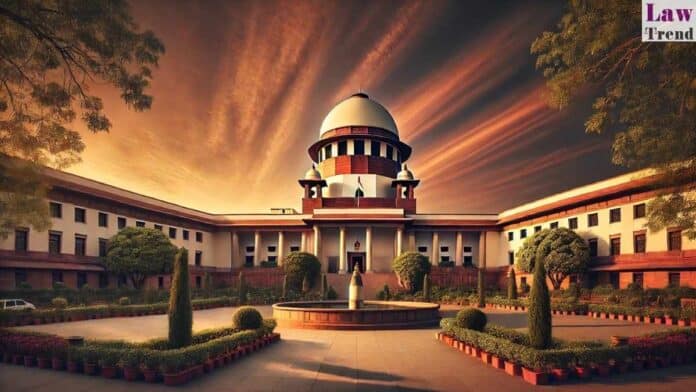Bench led by CJI Sanjiv Khanna clarifies extent of court powers under Sections 34 and 37; Justice Viswanathan dissents
In a significant ruling addressing a long-standing legal controversy, a five-judge Constitution Bench of the Supreme Court has held that Indian courts can modify arbitral awards to a limited extent under Sections 34 and 37 of the Arbitration and Conciliation Act, 1996. The Court, however, emphasised that such power must be exercised cautiously and only in specific circumstances.
The majority judgment was delivered by a Bench comprising Chief Justice of India Sanjiv Khanna and Justices B.R. Gavai, P.V. Sanjay Kumar, K.V. Viswanathan, and Augustine George Masih in Gayatri Balasamy vs ISG Novasoft Technologies Ltd. Justice Viswanathan delivered a dissenting opinion, stating that the Arbitration Act does not contemplate any power of modification.
Scope of Modification Clarified
The Court ruled that modification of arbitral awards by courts can be allowed in the following limited situations:
- Where the award is severable;
- For correcting typographical or clerical errors;
- In certain situations involving post-award interest;
- In rare cases, under Article 142 of the Constitution—but with extreme caution.
This decision reconciles earlier conflicting precedents, some of which disallowed any modification powers under Section 34 (e.g., Project Director NHAI v. M. Hakeem), while others had recognised certain exceptions.
Dissent by Justice K.V. Viswanathan
Justice Viswanathan dissented from the majority and opined that:
- Section 34 does not permit courts to modify or vary arbitral awards;
- Any such modification would undermine the core structure of arbitration;
- Article 142 cannot be used to modify arbitral awards;
- Post-award interest disputes should be referred back to the arbitral tribunal, not altered by courts.
He stated:
“It is crystal clear that they [courts] cannot change or vary the arbitral award as it will hit the core aspect.”
Background and Procedural History
The controversy first arose in February 2024 when a three-judge Bench noted significant inconsistencies in prior judgments relating to court powers under Section 34 and referred the matter to a larger Bench. In January 2025, the matter was formally placed before a Constitution Bench led by CJI Khanna.
Section 34 of the Act provides the grounds for challenging arbitral awards in court, including public policy violations, lack of jurisdiction, or procedural unfairness. Importantly, it does not permit courts to reappraise the merits of an award. Section 37 outlines the framework for appeals against specific orders, maintaining the principle of minimal court interference.
Arguments and Judicial Reasoning
During extensive hearings earlier this year, the Constitution Bench heard arguments from eminent senior advocates and government law officers.
Chief Justice Khanna acknowledged that while courts inherently have procedural review powers, broad intervention would undermine arbitration’s finality. Justice B.R. Gavai remarked that if Parliament intended to bar modifications outright, it would have done so explicitly, as seen in other jurisdictions.
Senior Advocate Arvind Datar argued for a flexible reading of “set aside” to include partial modifications, especially in cases of “patent injustice.” In contrast, Senior Advocate Saurabh Kirpal argued that the language of Section 34 leaves no room for judicial rewriting of arbitral awards.
Solicitor General Tushar Mehta stressed that the Arbitration Act functions as a “complete code,” and any interpretation allowing court modification could erode its streamlined structure. Additional Solicitors General Vikramjit Banerjee, Archana Pathak Dave, and Aishwarya Bhati also assisted the Court.
Other senior advocates who participated included Darius Khambata, Gourab Banerji, Gaurav Pachnanda, Shekhar Naphade, Ritin Rai, Naresh Markanda, Sumeet Pushkarna, Benny Thomas, and Prashanto Chandra Sen.




